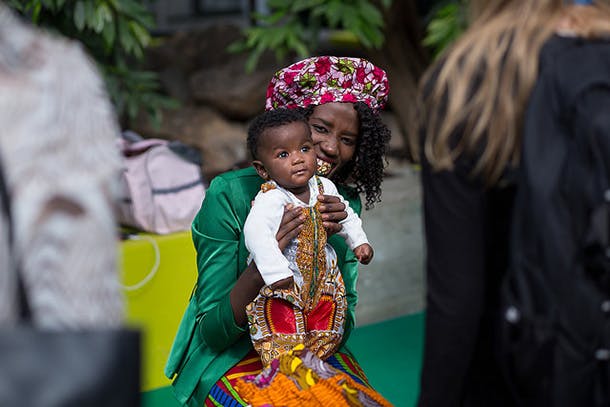
Editor’s Note: This post was co-written by Data2X’s Emily Courey Pryor and Rebecca Furst-Nichols
“Data, once the domain of geeks, is being put at the center of women’s rights,” writes Belinda Goldsmith in a recent article about the 2016 Women Deliver conference. Indeed, the attendees of both Women Deliver and the World Humanitarian Summit will attest that the subject of data received prime placement during these gatherings of development and humanitarian aid workers.
This increased attention is a welcome change for those of us who have been working to put gender data on national and international agendas. So, from the perspective of two gender data advocates, here are three reasons why the conversations in Copenhagen and Istanbul were transformational as we work to shift the way data is collected and used to more accurately depict girls’ and women’s lives and realities.
1. The case for gender data has been made.
Throughout Women Deliver, panels and op-ed pages echoed with statements like “Data is sexist,” and “There is no gender equality without data equality.” At the World Humanitarian Summit, the importance of humanitarian data that is disaggregated by sex and age was raised at side events, through the launch of the Humanitarian Data Center by the UN Office for the Coordination of Humanitarian Affairs and the Netherlands, which aims to increase data availability and innovation, and through the Humanitarian Data Exchange (launched after two years of beta testing), an open platform for sharing data.
Buzzy conversation about data may not have happened at conferences like these a few years ago, but now it seems natural. This is a big deal for gender data advocates because it means we can shift gears from talking people into listening about gender data to renewing energy on building data solutions, and helping ensure that complete, unbiased data is available to guide decision-making and monitor accountability.
2. Data is not just technical – it’s political.
Not only was there general agreement at Women Deliver and the World Humanitarian Summit that data is essential, what was striking was that data has clearly moved beyond the purview of the technical data scientists. Many advocates spoke passionately about how they are using data to support their work, from a young Nigerian activist who shared that his efforts to end female genital mutilation were only taken seriously when he integrated data into his arguments, to a UN Resident Humanitarian Coordinator who spoke of the significant challenges of responding to a humanitarian crisis without a baseline of information.
For gender data to fulfill its promise, we absolutely need to make this leap from the technical realm to the political; we need to gather good data to illustrate gender inequalities and then we need to use this good data to hold decision-makers accountable and rectify disparities.
3. Progress on gender data will require broad coalitions and deep financial commitment.
Gender data got a huge boost at Women Deliver thanks to a landmark speech by Melinda Gates, announcing the Gates Foundation’s $80 million commitment toward gender equality and improving gender data over the next three years. Equally important is the broad coalition that supported the Gates announcement, which included governments, UN agencies, and philanthropic organizations, including the William and Flora Hewlett Foundation, pioneers in gender data who ensured Data2X had start up cash and continue to provide ongoing financial and intellectual support. But if we are truly to move forward and get it right on gender data – which will require developing national statistical capacity at the country level, we need more governments and more organizations to commit to concrete policy change and dollars.
At Data2X, we are pairing our technical data partnerships, which work to build practical solutions to close gender data gaps with a new advocacy approach at the global, regional, and national levels to ensure that these moments for gender data in Copenhagen and Istanbul aren’t just a short-term blip, but a sustained priority shift.
As we transition from the year of adopting the Sustainable Development Goals to the year of starting to achieve them, this moment on gender data – which will enable us to measure, monitor, and celebrate our successes and correct our failures – could not be more timely. Without data equality, we cannot achieve gender equality, and without gender equality, we will not achieve the Sustainable Development Goals.




 View All Blog Posts
View All Blog Posts